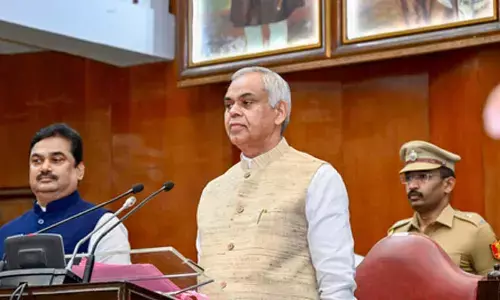Rapid Obesity Surge: India Faces Alarming Projections by 2030

Obesity has evolved into a significant global health crisis, impacting communities worldwide, with a notable surge in prevalence witnessed in low- and middle-income nations
Obesity has evolved into a significant global health crisis, impacting communities worldwide, with a notable surge in prevalence witnessed in low- and middle-income nations. According to the World Obesity Federation, projections indicate that by 2035, half of the global population will grapple with obesity. In India, studies conducted by the National Center for Biotechnology Information (NCBI) forecast that 27.8% of the population will be overweight and 5% obese by 2030. Furthermore, another study suggests that by the same year, 20% of rural Indian adults will be affected by overweight or obesity.
This multifaceted health issue, characterized by the excessive accumulation of body fat, not only compromises physical well-being but also presents significant socio-economic and psychological challenges. As per the National Family Health Survey-5 (NFHS-5) data, one out of every four Indians is presently grappling with obesity. The survey also reveals that overweight and obesity collectively affect 44.02% of male participants and 41.16% of female participants.
Causes of Obesity
Obesity has many different reasons, and they all work together. Some originate from genetic factors, others from environmental influences, and still others from behavioral patterns. For instance, insufficient physical activity and excessive screen time contribute to weight gain. Additionally, consuming calorie-dense foods lacking in nutrients exacerbates the issue. Socioeconomic challenges, such as limited access to healthy food and residing in densely populated urban areas, further compound the problem. In the present day, readily available high-calorie foods and sedentary occupations contribute to the increasing prevalence of obesity.
Socio and Psychological impact
Obesity has a more significant impact on socio-economically disadvantaged groups, worsening the already existing health disparities. Factors like lack of access to healthy foods, insufficient healthcare facilities, and environmental issues such as unsafe neighborhoods and lack of walkable areas contribute to higher obesity rates among marginalized communities. Moreover, obesity can create a cycle of poverty by hindering educational achievements and limiting job opportunities.
Obesity takes a toll on mental health, often leading to depression, anxiety, low self-esteem, and social stigmatization. Individuals with obesity frequently face discrimination in various domains of life, including employment, education, and healthcare, which further exacerbates their psychological distress and social isolation.
Lifestyle Changes
In order to attain and sustain a healthy weight, it's essential for individuals to integrate these fundamental habits into their daily routines. Firstly, prioritizing fruits and vegetables, aiming for 4-5 servings each day, provides essential nutrients, fiber, and antioxidants while keeping calorie intake in check. Adequate hydration is vital; it's recommended that individuals consume plenty of water and boost their intake of natural fiber, such as flaxseed, to enhance satiety and lower the likelihood of illness. As individuals progress toward their weight goals over 6-8 months, their bodies will adapt, allowing them to maintain weight despite reduced food intake. Combining dietary changes with increased physical activity benefits not only weight management but also heart and lung health, mood, and sleep quality. Incorporating relaxation techniques can further alleviate stress, a significant contributor to obesity. Always consult a qualified homeopath for obesity treatment.
(The author is a Padmashree recipient, and the founder and chairman of Dr Batra’s Healthcare)











